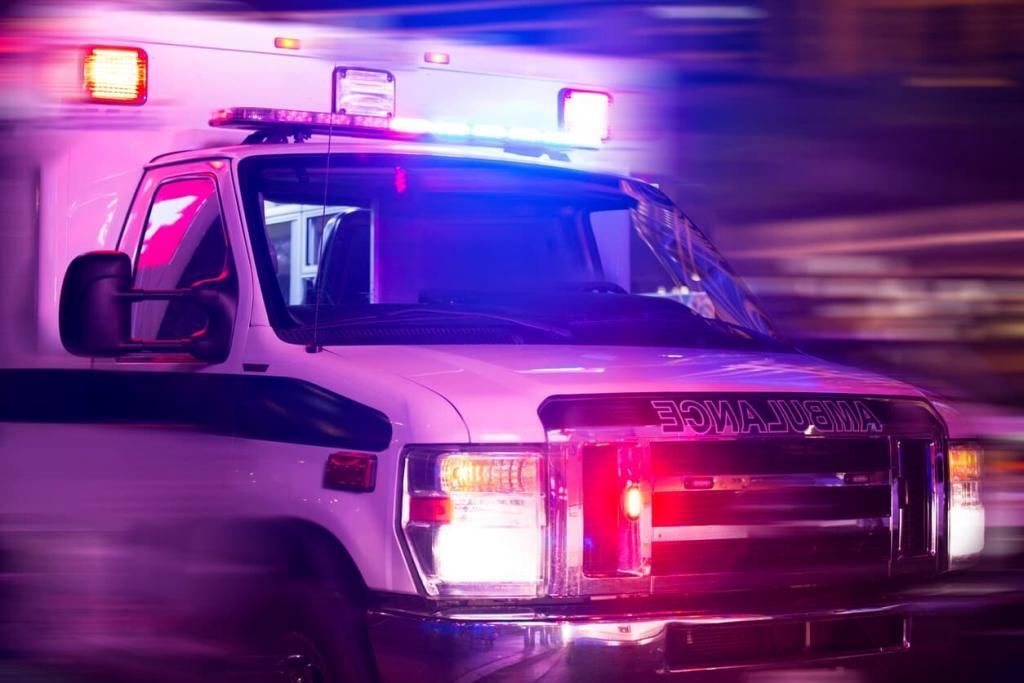Here’s a look at some of the most common injuries first responders suffer and what they can do to get the workers’ compensation benefits they are legally entitled to.
Any worker in any industry can suffer from work-related injuries. Even an employee working in an office is prone to certain work injuries and occupational diseases. But first responders, the ones who intervene first in case of an emergency, are usually at a higher risk of injury and disease than any other type of worker.
Here’s a look at some of the most common injuries first responders suffer and what they can do to get the workers’ compensation benefits they are legally entitled to.

Common Injuries in First Responders
The types of injuries that first responders can sustain vary a lot and can be quite unpredictable. They are regularly exposed to violence, fire hazard, viruses, other health hazards, dangerous situations, and increased risk of car accidents.
However, these injuries aren’t always so out of the ordinary or dramatic. First responders are just as exposed to regular injuries you can sustain in a less intense line of work.
As you can see, some of the most common injuries sustained by police officers, paramedics, and firefighters are the same ones you see in other industries.
Some of the more specific injuries that can be sustained by first responders are:
- Exposure to fire and smoke
- Exposure to viruses and contagious diseases (including COVID-19)
- Shot wounds
Nevertheless, when a first responder is injured, they have the right to be compensated for their medical costs and lost wages.
Emergency Medical Technicians (EMTs)
These first responders are responsible for providing medical care and transportation to individuals who are sick, injured, or in need of urgent medical attention. They work in various settings, including ambulances, hospitals, and clinics, and often face physical and emotional challenges. However, due to the nature of their work, they are prone to several injury risks, including:
- Physical exhaustion from long shifts and physically demanding work
- Risk of injury from lifting and moving patients
- Risk of exposure to infectious diseases
- Risk of assault or violence from patients or bystanders
- Risk of motor vehicle accidents while responding to calls
Police Officers
Police officers are responsible for maintaining law and order within a community, protecting citizens from crime and ensuring the safety of all individuals. They may work in various settings, including patrol duties, investigations, and traffic control, and often face dangerous and unpredictable situations. Some of the risks they face in the line of work include:
- Risk of assault or violence from suspects or perpetrators
- Risk of injury from physical altercations and restraints
- Risk of exposure to hazardous materials
- Risk of motor vehicle accidents while patrolling or responding to calls
- Risk of injury from falls, slips, and trips while on patrol
Firefighters
Firefighters are responsible for responding to fires, rescuing individuals from dangerous situations, and providing necessary medical assistance. They work in various settings, including fire stations, fire trucks, and at the scene of an emergency, and often face physically demanding and dangerous conditions on the job. And like other first responders, firefighters are prone to injury risks, including:
- Risk of injury from fighting fires and performing rescue operations
- Risk of exposure to hazardous materials and toxins
- Risk of injury from falls, slips, and trips while on the job
- Risk of injury from carrying and using heavy equipment
- Risk of injury from motor vehicle accidents while responding to calls
Workers’ Compensation for First Responders
First responders can apply for workers’ compensation when they get injured at work or get occupational diseases. They carry the burden of proof, which means that evidence is needed to demonstrate that the injury/disease was caused directly by work-related tasks resulting from their work conditions.
Evidence you can use in your workers’ compensation claim includes:
- Police reports from the scene of the accident
- Witness statements from eye-witnesses or expert witnesses
- Medical records from evaluations, test results, prescriptions, etc.
- Income statement that shows how much you were earning and how many hours were you working before the incident
- Written reports and journals of the events, plus your recovery afterward, can provide valuable information, particularly for long-term injuries.
As a special measure imposed during the COVID-19 pandemic, some states, including Missouri, have removed the burden of proof regarding the new virus. Because first responders are essential workers and they are constantly exposed and in direct contact with the public, it would’ve been nearly impossible for them to prove that they contracted the coronavirus at work.
Speak With a Workers Compensation Attorney
First responders are generally eligible for workers’ compensation and don’t need to use their earned paid leave for their recovery. In case you are a first responder and you got injured at work, contact an experienced St. Louis workers’ comp attorney at the Law Office of James M. Hoffmann ASAP to make sure your rights are defended.
